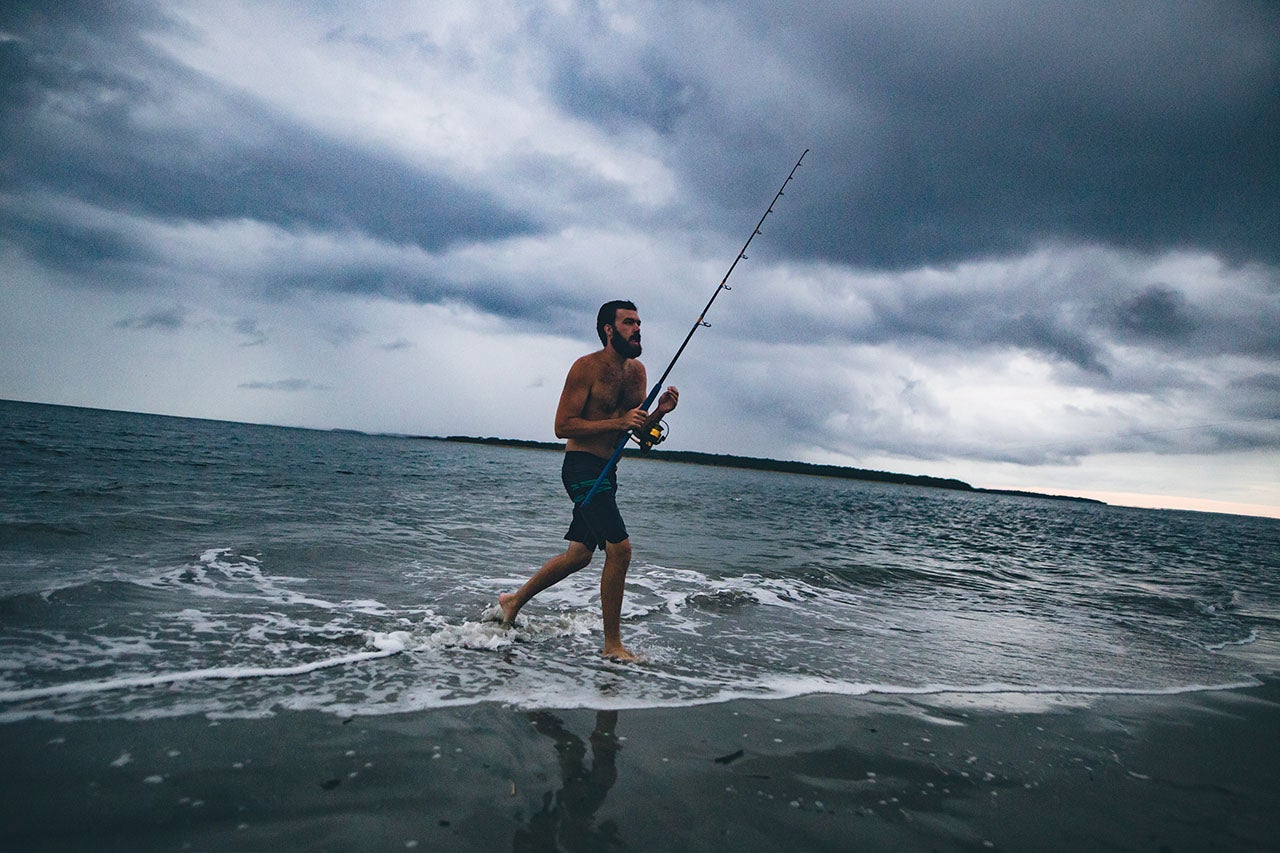Don’t ever play tag with Creed Branham. He is really good. And he honed his tag skills by playing with some really tough opponents: sharks.
For a number of years, the junior marine biology major has been tagging sharks to help scientists from the South Carolina Department of Natural Resources and the National Oceanic and Atmospheric Administration conduct research. Since he first started shark fishing as a middle-school student, Branham estimates that he has caught more than 200 sharks, about 50 of which were 5 feet or longer.
From April through October, Branham and his fishing partners can be found stalking Lowcountry waters at night looking for sharks. It is not easy work.
“Once you get the shark to the surf, one person fights the fish on the line while the other person wades into the water, grabs the shark by the tail and somehow manhandles it to the shore,” says Branham, who tags, measures and documents the shark once it’s on shore before quickly releasing it.
Just like any type of fish, sometimes they are biting and sometimes they are not. Branham typically catches the bait first at the spot he’s fishing (stingray is a favorite) and uses large circle hooks that catch the sharks in the corner of the mouth almost every time. With the barbs shaved off, the hooks aren’t difficult to remove and do minimal damage to the shark.
Branham says it takes a lot of patience on those nights when you spend eight hours fishing on a beach and come up empty. Then there are the busy nights, like the time he and a co-fisherman reeled in 12 sharks in about four hours, all of which were about 7–8 feet long.
The sharks – mostly lemon, but also bull, blacktips and sandbar – do not always play nice. Branham admits that he has been bitten on occasion, but nothing too bad. “They will rough you up a little bit,” he confesses.
But he’s had some close calls. He remembers the time he was in waist-deep water on an Isle of Palms beach. Something strange occurred as he was getting ready to cast his bait: “I leaned back to cast and noticed that the cast would not go forward,” he recalls. “I looked behind me and a 6-foot shark, silhouetted against the moon, had jumped out of the water and grabbed the bait behind me. It then shot past my leg and headed out. It was the most incredible thing I had ever seen. I was scared for about 20 seconds, but after I realized what happened, I thought, Oh my gosh, that was awesome!”
Despite the occasional scare, Branham is dedicated to studying sharks. He is currently in the middle of another research project concerning the diet of bonnethead sharks and hopes to publish a research paper of the study next year. After graduating from the College in 2020, he plans to attend graduate school and eventually earn his Ph.D.
Branham knows that when some people think of sharks, they immediately think of the iconic horror movie Jaws. However, that is not the case with him: “It is a pretty incredible animal that I consider a pleasure to interact with.”
Featured image: Creed Branham fishes on the beach. (Photo by Gately Williams)




